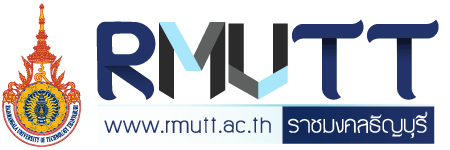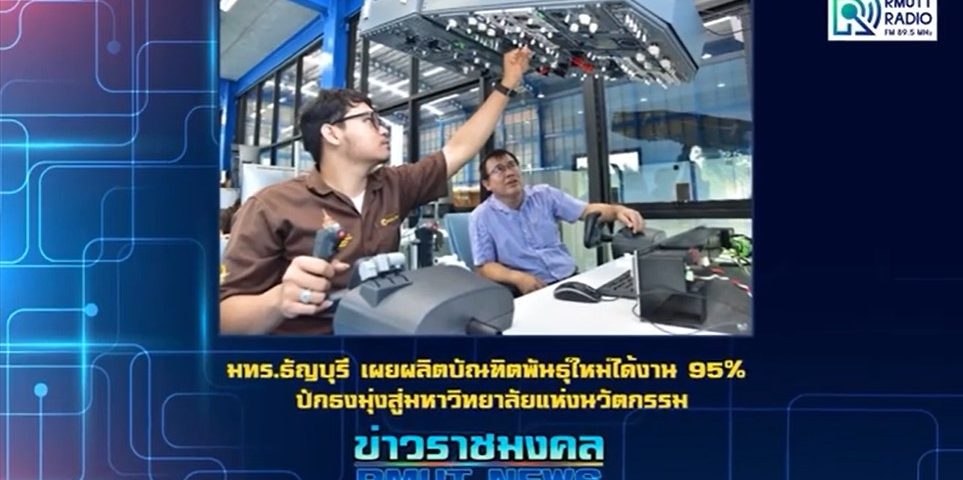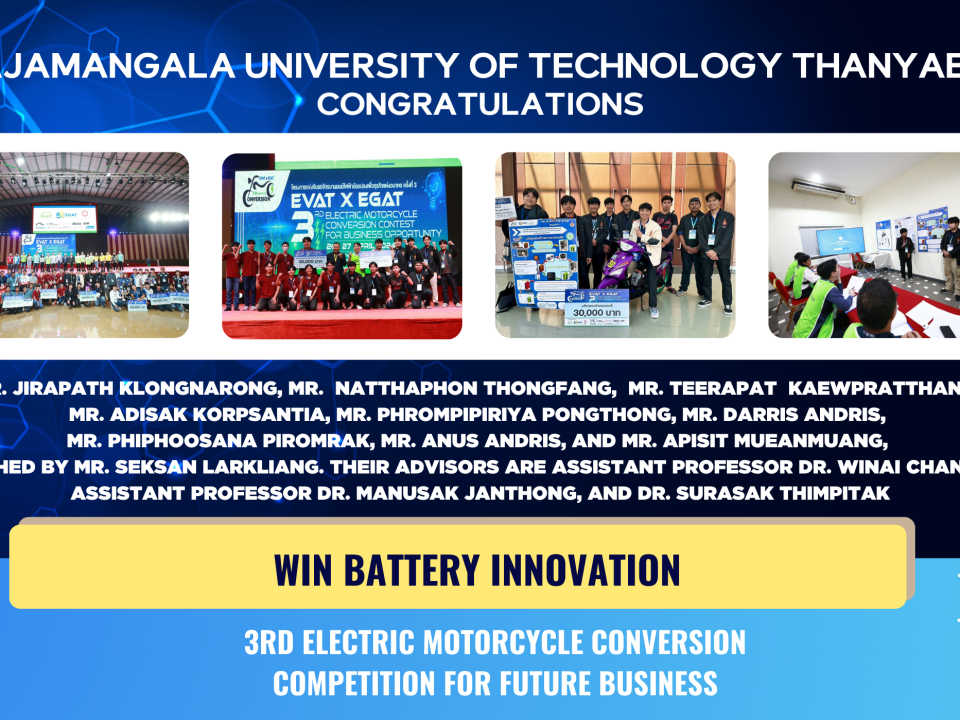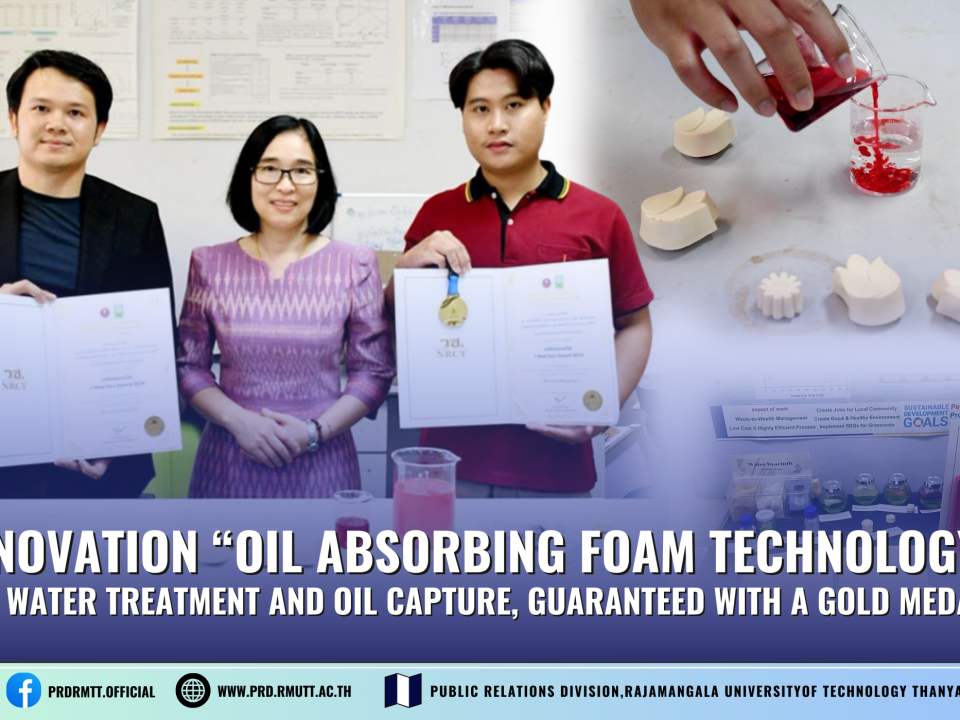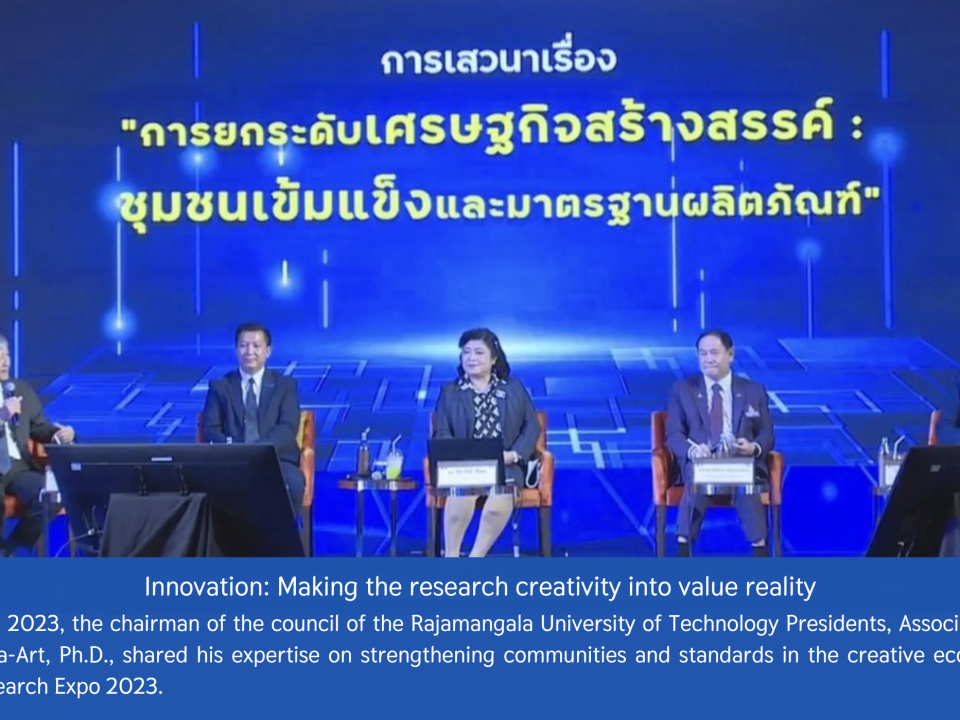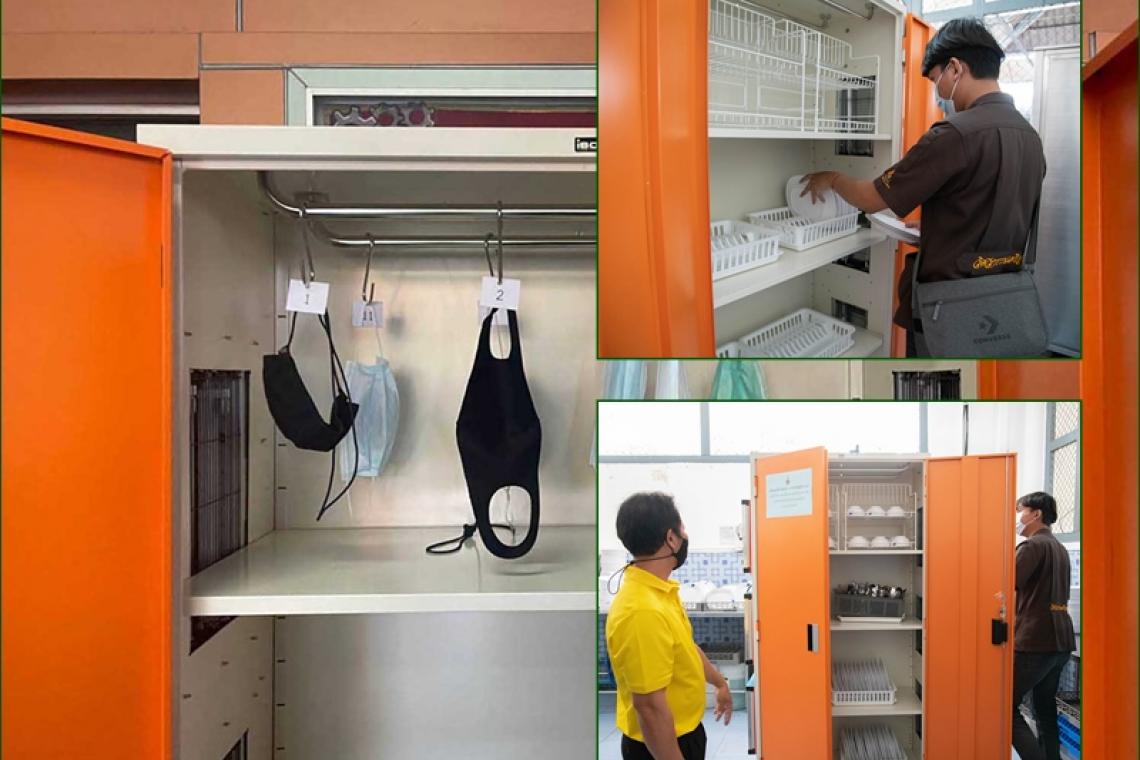
RMUTT” invents its own UV-C sterilizer chamber to eliminate Covid-19 virus
20/02/2021Next Step Learning, “Learn How to Learn” Campaign with RMUTT
21/02/2021After a huge impact of Covid-19 on education, all walks of society have been affected, also education. In order to keep education running, global educational institutions have had to quickly adapt by unprecedented pushing to new learning models without affecting students’ academic achievement. One of the education models is to use technology to support curriculum development enabling students to gain access to university classes at any time and any place. More importantly, policies that aimed at strengthening ties between universities and labor market will facilitate university graduates respond to the demands of the labor market.
Accordingly, Rajamangala University of Technology Thanyaburi, RMUTT has certainly been thriving and dedicating in promoting skills and academic knowledge actually needed in occupations for higher education students. The university has also been strategizing to produce academic experts who are “practitioners, scholars, and innovators” in order to facilitate students’ interest and engagement in scientific and technological disciplines and targeted industries to foster a learning society in accordance to Thailand’s strong policy framework even if Covid-19 pandemic has caused a setback in Thailand economics particularly, the labor market.
President of Rajamangala University of Technology Thanyaburi, Assist. Prof. Dr. Sommai Pivsa-Art revealed that the number of students applying in RMUTT has significantly increased each year between 2019 and 2020, increasing from 105 percent to 110 percent during this period (approximately 6,800 students per year). Interestingly, there were 1,625 vocational and higher vocational students applying during the first day of application but only 1,445 students were available for enrollment. This may be resulted from RMUTT university’s graduate employability rates were so high at 90 to 95 percent.
Presently, Rajamangala University of Technology Thanyaburi (RMUTT) has 10 faculties and one college (Thai Traditional Medicine College) which are responsible for offering four levels of educational programs in various disciplines: diploma programs in vocational education, Bachelor’s degree, Master’s degree and Doctoral degree programs which included 81 to 85 undergraduate programs, 22 graduate programs and 8 PhD programs. Several faculties had already been offering their non-degree courses in order to help student fulfill both their needs of education and provide opportunities to further their careers by earning academic qualifications including academic degrees and certificates. The non-degree programs included, ‘Graduate Diploma in Teaching Profession Program’ under the supervision of TCT, ‘Premium Beef Production for High-End Markets Program’, ‘Textile Engineering for New Automotive Industry Program’, ‘Training Program for Manufacturing Process and Design for New Automotive Industry’, etc.
Assist. Prof. Dr. Sommai Pivsa-Art further added that all 80 courses were all parts of co-operative education programs and Work Integrated Learning (WIL) implemented with TM-15 teaching methodology. Currently, the 40 new programs were coordinated by affiliate providers cover targeted industries (new S-curve) and include co-operative education opportunities students to obtain 4 months or 1 academic semester in professional work experience. In addition, RMUTT was not only to have students join cooperative education with leading organizations in the country, but also offered 50,000-baht scholarships for international student exchange programs during the second semester of the 4th year to obtain 4 months or 1 academic semester with 15 credits of study. Right now, there are more than 1,500 leading organizations who join cooperative education with RMUTT.
“RMUTT now offers 8 cooperative education programs for undergraduates students including avionics and railway systems engineering through close collaboration with leading private organizations and government agencies for the like of BTS, MRT, and Suvarnabhumi airport. Specifically, at the airport, our RMUTT engineering students had taken their parts in assisting designing railway network plan and constructing tunnel for Terminal 1 and Terminal 2. Fortunately, after graduation, students were able to get full time jobs at the at the airport. Moreover, our agricultural students who are experts in smart farming are highly demanded by companies even getting their jobs before graduating. Thus, these students are well-prepared workforces who are ready to make their careers successful and undoubtedly, a great pick for companies.
Assist. Prof. Dr. Sommai further revealed that RMUTT had targeted itself to become an innovative university by strategizing to produce practitioners, scholars, innovators and entrepreneurs. We have been developing curriculum and designing courses regarding policies of Ministry of Higher Education, Science, Research and Innovation, MHESI. The courses are implemented using teaching and learning approaches including STEM, active learning, project-based teaching, Finnish-based teaching, and CDIO. During the Covid-19 outbreak, RMUTT offers both virtual instruction and onsite teaching for graduate and undergraduate classes. In case students who need to remain on campus will also receive instruction but up to 25 people are allowed in the class.
“I have to say that all courses and programs are designed and developed with the intention of supporting students in determining their career goal and transitioning to students’ next career step. Hopefully after 20 years from now, students will always feel blessed to be having their education here, making their own careers, enabling themselves to work in leading companies and of course, more importantly our RMUTT will produce academic experts who are “practitioners, scholars, and innovators” in order to facilitate students’ interest and engagement in scientific and technological disciplines.”
And thus, all in all, RMUTT will extensively develop strong vocational programmes into another level preparing students for further study as well as for jobs and creating long-term strategic and impactful relationships and building corporate partnerships with leading companies. If students successfully make their career, their achievements will definitely drive our country and our economy forward.
